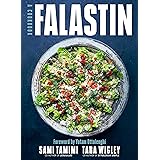The pursuit of optimal health and longevity is a common aspiration for many. As highlighted in the video above, one dietary approach that consistently gains recognition for its profound benefits is the Mediterranean Diet. For those concerned about prevalent health issues such as heart disease and weight management, this eating pattern offers a compelling solution, rooted in centuries of tradition and backed by modern scientific research.
The video succinctly introduces the power of this dietary choice, noting its remarkable ability to reduce the risk of heart disease by 30% and significantly lower the risk of early death by up to 80%. Such statistics underscore the importance of understanding the core principles that make the Mediterranean Diet so effective. This comprehensive guide will expand upon these initial insights, offering a deeper look into the fundamentals and practical applications of adopting a Mediterranean lifestyle.
Understanding the Core Principles of the Mediterranean Diet
The Mediterranean Diet is not merely a diet in the conventional sense; rather, it is an eating pattern inspired by the traditional cuisines of countries bordering the Mediterranean Sea, such as Greece, Italy, and Spain. Its emphasis is placed on whole, unprocessed foods, enjoyed in moderation and often in a social setting. From a nutritional standpoint, its foundation is built upon several key components.
Emphasis on Plant-Based Foods
A significant portion of daily intake within the Mediterranean Diet consists of plant-based foods. Fresh fruits and vegetables are consumed in abundance, providing a rich source of vitamins, minerals, and antioxidants. These compounds are considered crucial for combating oxidative stress and inflammation within the body. Furthermore, whole grains, such as oats, brown rice, and whole wheat pasta, are staples, offering sustained energy and essential fiber. Legumes, including beans and lentils, also play a prominent role, serving as excellent sources of plant-based protein and dietary fiber.
The Role of Healthy Fats
Unlike many Western diets that often demonize fats, the Mediterranean Diet embraces healthy fats, particularly extra virgin olive oil. Olive oil is the primary source of added fat, being rich in monounsaturated fatty acids, which are understood to contribute positively to cardiovascular health. Nuts and seeds, containing healthy fats, fiber, and protein, are also included in moderate quantities, further enhancing the diet’s nutritional profile.
Lean Proteins and Dairy in Moderation
While protein is a vital component, the Mediterranean Diet prioritizes lean sources. Fish and seafood are consumed regularly, often several times a week, providing omega-3 fatty acids that are beneficial for heart and brain health. Poultry is incorporated in moderation, while red meat consumption is typically limited to a few times per month. Dairy products, like skim milk and low-fat yogurt, are enjoyed in moderate portions, often as part of a meal or snack.
Profound Health Benefits: Beyond the Basics
The impressive statistics cited in the video – a 30% reduction in heart disease risk and up to an 80% reduction in early death – are compelling reasons to consider this eating approach. These benefits are attributed to the synergistic effects of the diet’s various components, working together to promote overall well-being.
Enhancing Cardiovascular Health and Disease Prevention
The substantial reduction in heart disease risk is largely due to the diet’s impact on several markers of cardiovascular health. The high intake of monounsaturated fats from olive oil, coupled with the antioxidants from fruits, vegetables, and whole grains, is believed to help lower “bad” LDL cholesterol levels and raise “good” HDL cholesterol. Blood pressure regulation is also positively influenced, contributing to a healthier circulatory system. Therefore, the anti-inflammatory properties inherent in the Mediterranean Diet are thought to play a critical role in preventing arterial damage and plaque buildup, which are precursors to heart conditions.
Supporting Healthy Weight Management
Although not specifically a weight-loss diet, the Mediterranean Diet can significantly aid in maintaining a healthy weight. The emphasis on whole, unprocessed foods that are rich in fiber and protein helps promote satiety, meaning individuals often feel fuller for longer. This natural reduction in caloric intake, without strict portion control, can prevent overeating and contribute to sustainable weight management. Sugary drinks, highly processed foods, and refined grains, which are often calorie-dense and nutrient-poor, are naturally limited within this dietary pattern.
Promoting Longevity and General Well-being
The remarkable statistic concerning the reduction in early death highlights the broader, systemic benefits of this diet. Its anti-inflammatory nature and rich antioxidant content are believed to protect cells from damage, which in turn may reduce the risk of various chronic diseases beyond just heart disease, including certain cancers, type 2 diabetes, and neurodegenerative conditions. The holistic approach, which also often includes regular physical activity and social interaction, further contributes to an overall enhanced quality of life and increased longevity.
Practical Steps for Adopting the Mediterranean Diet
Transitioning to the Mediterranean Diet can be a gradual and enjoyable process. It is not about strict rules but rather about embracing a different food philosophy.
Starting with Small, Manageable Changes
Incorporating more plant-based meals into the weekly routine is an excellent starting point. A ‘Meatless Monday’ can be introduced, focusing on dishes rich in beans, lentils, and vegetables. Additionally, swapping butter for extra virgin olive oil in cooking and for dipping bread is an easy way to adopt healthier fats. The replacement of sugary snacks with fresh fruit or a handful of nuts is also a simple yet impactful adjustment.
Stocking Your Pantry and Fridge
A well-stocked pantry and refrigerator make it easier to adhere to the Mediterranean eating pattern. Key items to have on hand include:
- **Whole Grains:** Brown rice, whole wheat pasta, quinoa, oats, whole grain bread.
- **Legumes:** Canned or dried chickpeas, lentils, black beans, cannellini beans.
- **Healthy Fats:** Extra virgin olive oil, olives, avocados, various nuts and seeds.
- **Fruits and Vegetables:** A wide variety of seasonal produce.
- **Proteins:** Canned tuna or salmon, frozen fish fillets, eggs, lean poultry.
- **Dairy (in moderation):** Low-fat Greek yogurt, feta cheese.
Mindful Meal Planning and Preparation
Planning meals that feature plenty of vegetables, legumes, and whole grains, with fish or poultry as the main protein a few times a week, can simplify the process. Simple cooking methods, such as grilling, roasting, and steaming, are often favored to preserve nutrients and flavors. Preparing meals at home also allows for greater control over ingredients, ensuring that the principles of the Mediterranean Diet are followed accurately. This proactive approach supports the long-term sustainability of the dietary changes.
The insights provided by the video regarding the benefits of a Mediterranean Diet are just the beginning. By understanding its foundational elements and integrating these into daily life, a path toward improved heart health, effective weight management, and extended longevity can be realized.











